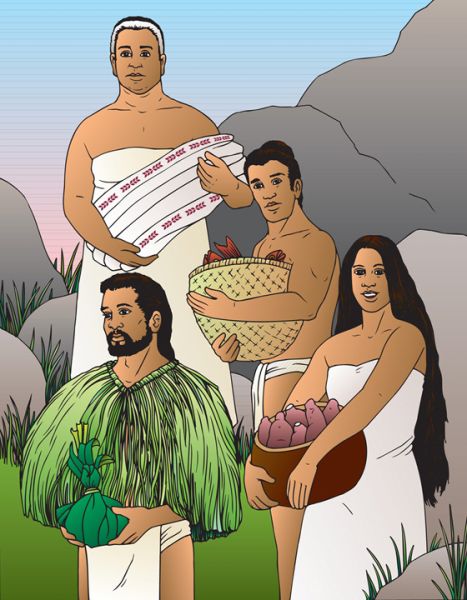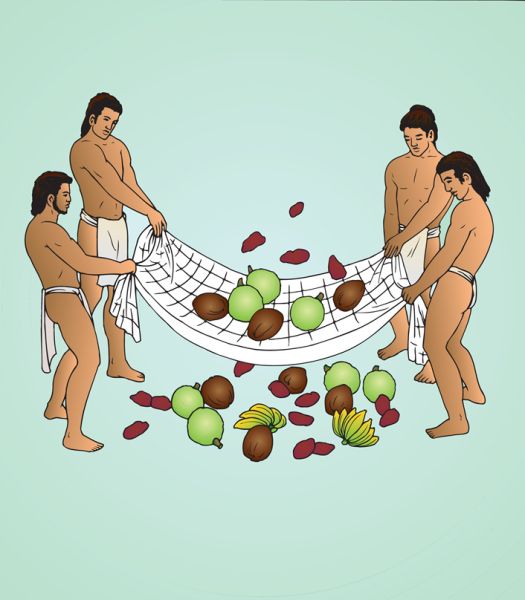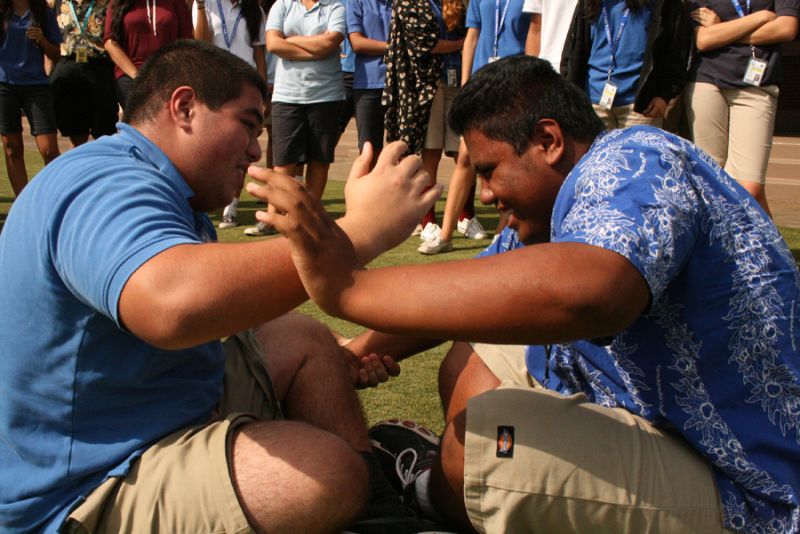Digital Collections
Celebrating the breadth and depth of Hawaiian knowledge. Amplifying Pacific voices of resiliency and hope. Recording the wisdom of past and present to help shape our future.
Keikio‘ewa Ka‘ōpua [Ho‘okahua]
November 2013
For the makaʻāinana, the Makahiki season was a time of excitement and enjoying the ceremonies and games. There was also some apprehension about performing before the aliʻi nui or even some anxiety about whether offerings and hoʻokupu would be acceptable.
Makahiki provided a venue for makaʻāinana to present their best works and perform feats of athleticism before their akua and aliʻi. People delighted in seeing their local champions compete. The scene was complete with all the cheering and jeering of today’s sporting events. Most Makahiki sports involved skills for war, so for the aliʻi nui, it was opportunity to identify the best warriors. Mokomoko, bare-knuckle boxing was one of the peoples favorite events and was well attended. This event could last for four days. Sometimes the champions of the various sports would follow the akua Makahiki as it continued its journey to the next ahupuaʻa.
There were many ceremonies that the people looked forward to during the time of Lono. One such ceremony involved ke Kōkō o Maoloha i ka lani or "the net of Maoloha in the heavens." This was a reference to an ancient moʻolelo of the time when the net first appeared in the sky during the time of famine. One version describes how Waia, a kupua or supernatural being, let down the net, which was full of food, and shook it so that the food would be "scattered over the land for the benefit of the starving people."
The ceremony was a reenactment of the legend, using a net with large eyes. Once the net was filled with food, men held up the ends and the kahuna chanted a mele oli. At certain parts of this mele, the men holding the net would shake it vigorously to assure that food fell through the net. This symbolized the abundance of the coming year. According to the Hawaiian scholar Davida Malo, "If the food did not drop from the net, the kahuna declared there would be famine in the land; but if all fell out he predicted that the season would be fruitful."
Just as the rise of Makaliʻi proclaimed the beginning of the Makahiki season and the onset of the kapu belonging to Lono, when the wooden akua loa departed from an ahupuaʻa, it signaled the eventual releasing (hoʻonoa) of Lono’s kapu and their replacement once again by those belonging to Kū.
As for the moku, or larger district, the month of Kāʻelo (roughly three to four months after Makahiki began) saw the akua loa complete its circuit. The matters of state were now put in order and the akua were disassembled and the Makahiki brought to an end. This time of transition also included the lifting of the kapu on aku fishing while ʻōpelu then became kapu. The aliʻi nui and the kāhuna would ceremonially feast on pork, having abstained from eating it since the beginning of the season. This marked the ending of Makahiki observances.
The Makahiki served not only as a respite but a reset for the year. The aliʻi and the kāhuna received their provisions and the makaʻāinana looked forward to another prosperous year as life eased back into its normal routines and cycles.
For us today, we may not be planning to reenact the Kōkō o Maoloha ceremony, yet, there are valuable Makahiki lessons that are applicable in our day-to-day lives. For every cycle there is a beginning and an ending. By acknowledging this and applying the right focus and effort to properly wehe (open or begin) and pani (close, finish) our endeavors, we better position ourselves to provide for our families and lāhui and to tackle the challenges ahead of us in the next phase of the cycle.

illustration credit: Robin Yoko Racoma
Some different ho’okupu, or tributes, offered at Makahiki.

illustration credit: Robin Yoko Racoma
The net of Maoloha, used in ceremony to ensure an abundance crop in the coming year.

Photo Credit: Hoʻokahua
Two KSK high school students compete in honuhonu, a seated wrestling match, as their classmates look on.